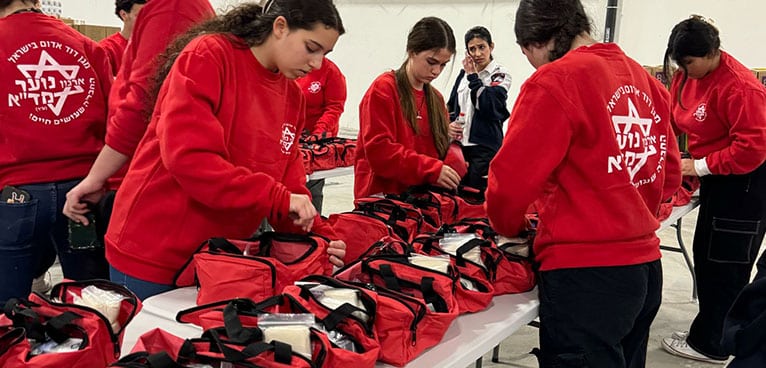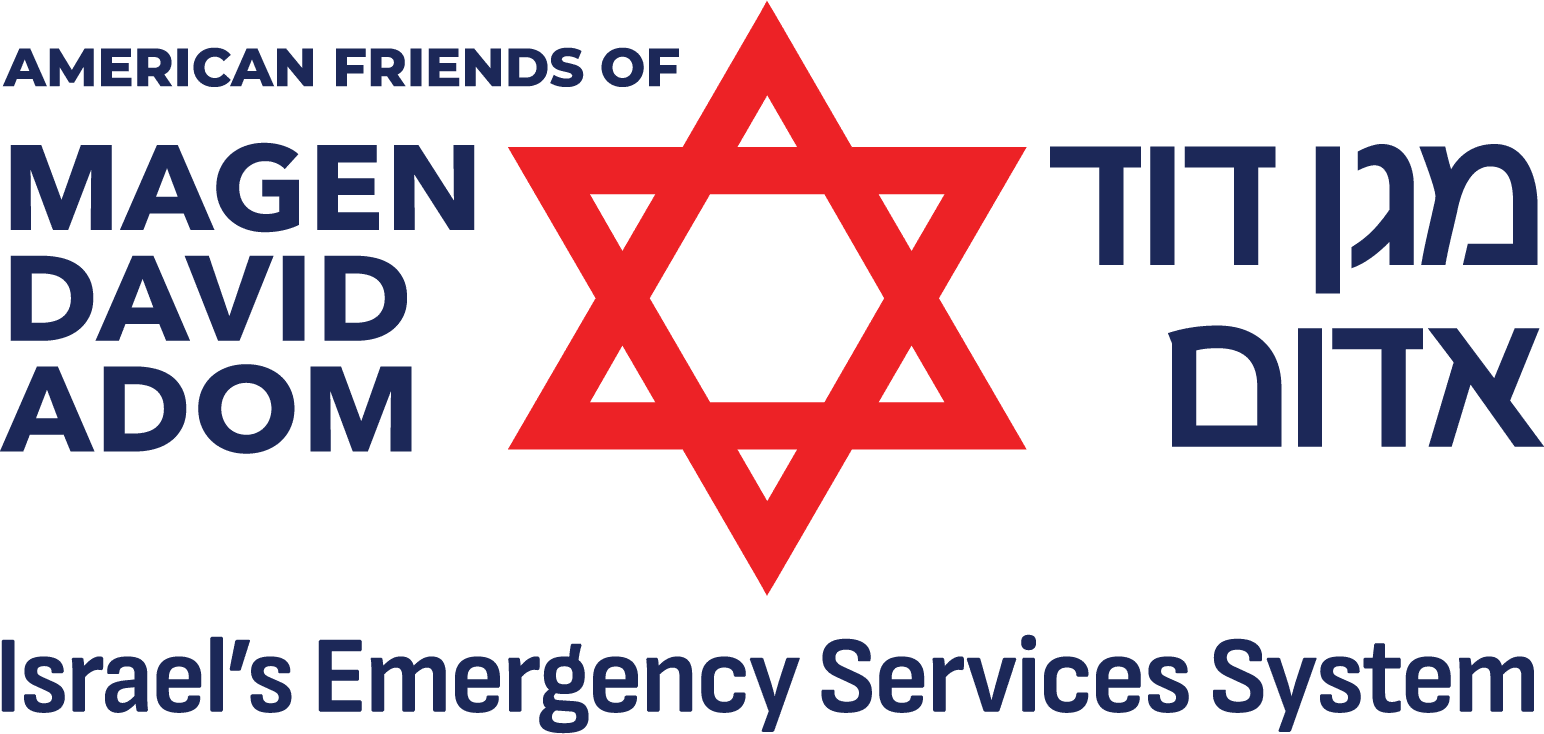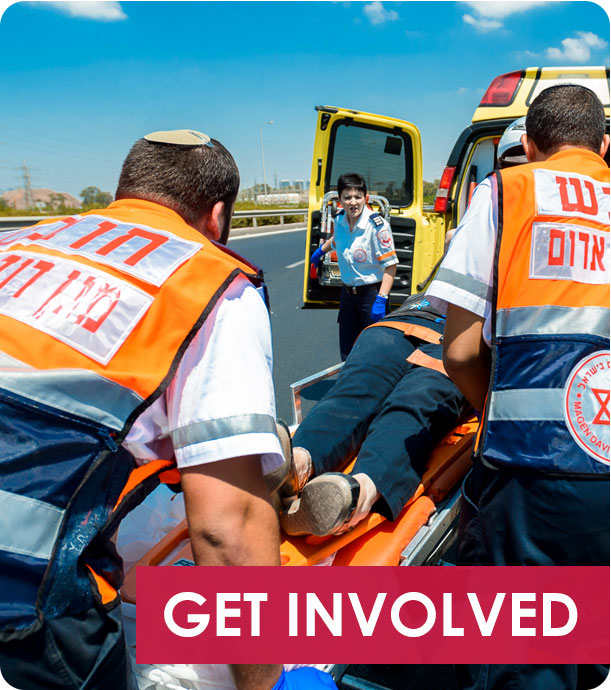Magen David Adom Training 1,000 Community-Based Emergency Medical Teams
The unprecedented challenges presented by the October 7 Hamas attacks surfaced a reality: how do remote communities get emergency medical assistance quickly in the midst of an ongoing attack.
Magen David Adom, Israel’s emergency services system, has a solution: The Magen Project.

As part of the Magen Project, Magen David Adom is training 1,000 Community Emergency Response Teams (CERT), providing them with emergency medical equipment, and connecting them to MDA’s National Operations Center, a vast network of EMTs and paramedics.
The initiative is designed to address the potential of future military-style sieges that could delay the arrival of lifesaving care.
During the attacks on October 7, Hamas isolated communities on the Gaza border with heavily armed bands of terrorists, who targeted ambulances and blocked roads in and out of these towns. MDA responded quickly by dispatching EMTs and paramedics from its stations across the country.
However, firefights between terrorists and responding police and troops necessitated Magen David Adom setting up impromptu treatment clinics until patients could be safely evacuated to area hospitals by ambulance or Medevac helicopter. And in some cases, injured people could not receive help until roads were secured.
By training a CERT and integrating it with local security professionals, MDA will ensure that injured patients always receive critical care, even on the rare occasion when external teams cannot immediately get to the site of an attack.

“The communities are the best authorities on what they need,” explained Uri Shacham, Magen David Adom’s chief of staff. “We’re working with each locality in a very personalized way to provide the kind of training and equipment that will be of most use to them.”
Emergency medical training is provided on several levels, including:
- Specialized primary medical care training for CERT members who are already EMTs
- Advanced critical training for paramedics and doctors
- First aid, CPR, and bleeding-control courses for all members
In addition, MDA will certify two members of each community’s security team as EMTs, so that, when necessary, emergency medical care can be provided even when there’s a widespread threat, and access to the community is temporarily compromised.
Equally critical to the project are the rescue and equipment vehicles operated by Magen David Adom teams. Multi-Casualty Rescue Units, 10-foot trailers equipped with a large stock of medical supplies to provide treatment for up to 10 seriously wounded and 20 moderately wounded patients, are designed to get supplies to the scene quickly. Magen David Adom will also equip hundreds of CERTs with emergency response vehicles assigned to two to three CERT members.
Finally, Magen David Adom will connect each CERT to Magen David Adom’s computer-aided dispatch system. CERT members will be registered in a Magen David Adom database and officially dispatched to medical emergencies in their community.
“With resources and training provided by Magen David Adom, and full integration with our cutting-edge dispatch system, we can maximize the potential that already exists in Israel’s towns and neighborhoods,” Shacham said. “Working together, we can ensure that our communities are always fully protected.”

